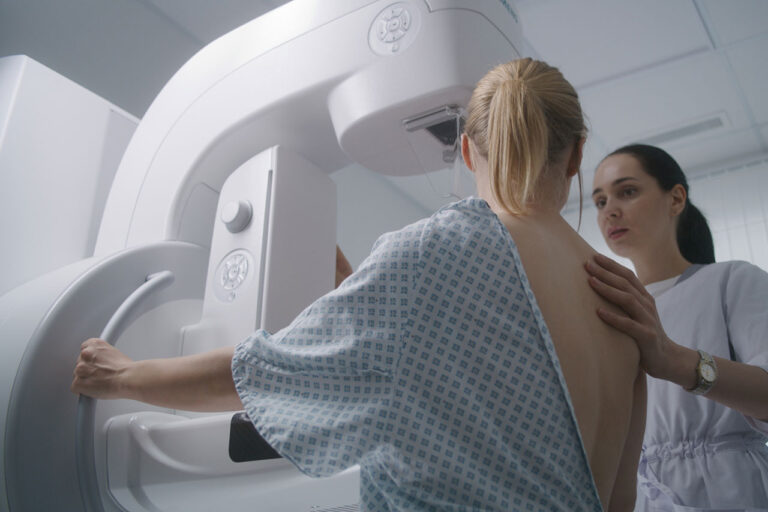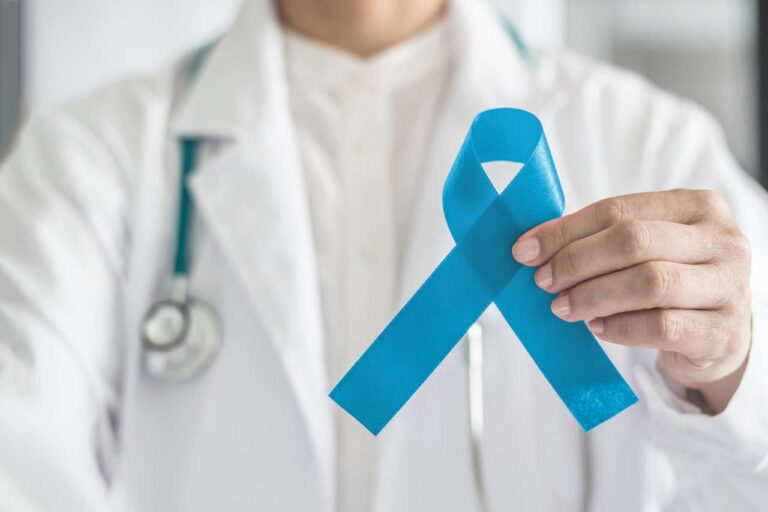
Zejula, also known by its generic name niraparib, is a cancer-targeted drug. It is typically prescribed as a “maintenance” treatment to adult women with certain types of cancer, mainly ovarian epithelial, fallopian tube, or primary peritoneal cancer.
Zejula belongs to the class of medications called poly (ADP-ribose) polymerase (PARP) inhibitors. These medications interfere with the growth of cancer cells, leading to cancer cell death.
Speak to a Specialist
About Copay AssistanceThis medication was first approved by the US Food and Drug Administration (FDA) on March 27, 2017, and can only be obtained with a doctor’s prescription.
What Is Zejula Used To Treat?
Zejula is approved as a “maintenance” treatment in adult patients under the following conditions:
- Patients undergoing first-line platinum-based chemotherapy for advanced epithelial ovarian, fallopian tube, or primary peritoneal cancer who are responding fully or partially to the treatment
- Patients whose cancer is linked to a harmful mutation on the BRCA germline and who are having a complete or partial response to platinum-based chemotherapy for recurrent ovarian, fallopian tube, or primary peritoneal cancer
When Is Zejula Usually Prescribed to Patients?
Zejula is typically prescribed to patients within 12 weeks of their treatment with platinum-based chemotherapy.
How Does It Work?
Zejula contains an active substance, niraparib, which is a PARP inhibitor. Generally, under normal circumstances, when your DNA gets damaged, your body activates the tumor suppressor genes (for example, the BRCA gene) and PARP protein. The tumor suppressor gene and PARP protein work together to repair the damaged DNA.
However, in the case of cancers, the BRCA gene becomes non-functional, and tumor cells rely solely on the PARP protein to repair its damaged DNA.
The active component (niraparib) in Zejula inhibits the PARP protein, which stops the DNA of cancer cells from being repaired. By halting the repair process, these cancer cells die, thus reducing cancer cell growth.
What Are the Available Dosage Forms and Strengths?
Zejula comes in tablet and capsule form with the following strengths:
- Capsules: 100 mg strength
- Tablets: 100 mg, 200 mg, or 300 mg strength
What Is the Usual Dose for Cancer?
- Dosing Information
The dosage is measured in milligrams and customized according to the patient’s platelet count, body weight, type of cancer, response to the chemotherapy treatment, or any side effect that may occur when using Zejula.
For example, a patient with first-line advanced epithelial ovarian cancer weighing ≥77 kg (≥170 lbs) with a platelet count ≥150,000/mcl, the recommended dosage is 300 mg once a day. However, if a patient weighs less than 77 kg (<170lbs) or has a platelet count <150,000/mcl, the recommended dose is 200 mg once daily.
What if I Miss a Dose?
Skip the dose if you forget to take it or throw up immediately after taking it. Take your subsequent dose at the scheduled time after that. Avoid “doubling up” on Zejula by taking two doses. You may experience adverse medication effects if you do this.
How Is Zejula Taken?
Zejula capsules and tablets are taken orally with or without food. You can take this medication with water or other liquid once daily.
The capsule should be swallowed whole and should not be opened or chewed. Tablets should be swallowed whole and not crushed, chewed, or split. The best time to take the medication is before bedtime, as it can help reduce nausea.
What Are the Side Effects?
Get Financial Assistance
Cancer patients taking Zejula can experience some common and potentially serious side effects.
Common Side Effects

The most common side effects (seen in ≥ 10% of cases) are as follows:
- Skin rashes
- Nausea
- Vomiting
- Stomach (abdominal) pain and fatigue
- Diarrhea and constipation
- Cough or shortness of breath (dyspnea)
- Dizziness
- Headache
- Urinary tract infection
- Sleep problems (insomnia)
- Decreased appetite
- Muscle pain
- Hypomagnesemia (low magnesium [Mg] levels in the blood)
- Acute kidney injury
Potentially Serious Side Effects
Patients taking Zejula may develop or experience potentially serious and life-threatening side effects, which include:
- Hypertension
- Cardiovascular effects
- Posterior reversible encephalopathy syndrome
- Myelodysplastic syndrome/acute myeloid leukemia (occurred in 15 out of 1,785 patients)
- Low blood cell count, including thrombocytopenia, anemia, neutropenia, and/or pancytopenia
If you experience any of the side effects mentioned above, immediately consult your healthcare provider.
Can Zejula Cause Weight Loss or Hair Loss?
Currently, no studies support the idea that Zejula can cause weight or hair loss in patients.
Speak to a Specialist
What Precautions Should You Take?
Before taking Zejula, consult your healthcare provider and share your current health status and medical history. Tell your doctor if you are:
- Pregnant or intending to become pregnant: Zejula is known to cause fetal harm when administered to a pregnant woman. Therefore, it is recommended that those who are able to become pregnant should take birth control during treatment with Zejula and for at least 6 months after the last dose.
- Breastfeeding: This drug may pass to breastmilk; therefore, you should avoid breastfeeding during treatment and for at least 1 month after your last dose.
- Taking medicines: This includes prescription medication, over-the-counter medicines, vitamins, and herbal supplements.
Inform your doctor if you have ever had:
- Heart disease
- High blood pressure
- Liver disease
Is There Any Alternative to Zejula?
Yes, Rucaparib (Rubraca®) is another PARP inhibitor containing niraparib, similar to Zejula.
Is Zejula a Type of Chemotherapy?
No, it is not a type of chemotherapy but a cancer-targeted drug. The aim of Zejula is to decrease the number of cancer cells in the body, however, as PARP works on both healthy cells and cancer cells, Zejula may affect the repair of some healthy cells.
Cost
The cost of Zejula capsules or tablets can be notably high for some patients since it is not currently available in generic form. For example, the cash price of Zejula oral tablets (100 mg, 200 mg, and 300 mg) is around $19,307 for a supply of 30 tablets. Zejula may be fully or partially covered by some health insurance plans. If you’re considering taking Zejula capsules or tablets, it’s advisable to consult with healthcare providers about potential assistance programs to reduce out-of-pocket expenses.
REFERENCES:
- US Food and Drug Administration (FDA). Zejula Prescribing Information: https://www.accessdata.fda.gov/drugsatfda_docs/label/2022/208447s026lbl.pdf
- European Medicines Agency (EMC). Zejula Prescribing Information: https://www.ema.europa.eu/en/medicines/human/EPAR/zejula
- Niraparib (Zejula). Cancer Information | Cancer Research UK. https://www.cancerresearchuk.org/about-cancer/treatment/drugs/niraparib
- Writer, L. a. R. P. R. M. (n.d.). Zejula (Niraparib) first PARP inhibitor approved for maintenance treatment of recurrent ovarian, fallopian tube, or primary peritoneal cancer. The Journal of Hematology Oncology Pharmacy. https://jhoponline.com/2018-third-annual-oncology-guide-to-new-fda-approvals/17458-zejula-niraparib-first-parp-inhibitor-approved-for-maintenance-treatment-of-recurrent-ovarian-fallopian-tube-or-primary-peritoneal-cancer
- Gallagher, J., Heap, K., & Carroll, S. (2018). Real world occurrence of top three clinical-trial reported adverse events of PARP inhibitor niraparib maintenance therapy in platinum-sensitive, recurrent ovarian cancer, a national retrospective observational study of a 200 mg/day starting-dose cohort. Annals of Oncology, 29, viii351–viii352. https://doi.org/10.1093/annonc/mdy285.193
- Monk, B., Mirza, Vergote, I., Li, Y., Malinowska, I., Gupta, D., Graybill, W., Pothuri, B., & Gonzalez-Martin, A. (2019). A prospective evaluation of tolerability of niraparib dosing based upon baseline body weight and platelet count: Blinded pooled interim safety data from the ENGOT-OV26/PRIMA study. Gynecologic Oncology, 154, 3–4. https://doi.org/10.1016/j.ygyno.2019.04.018













